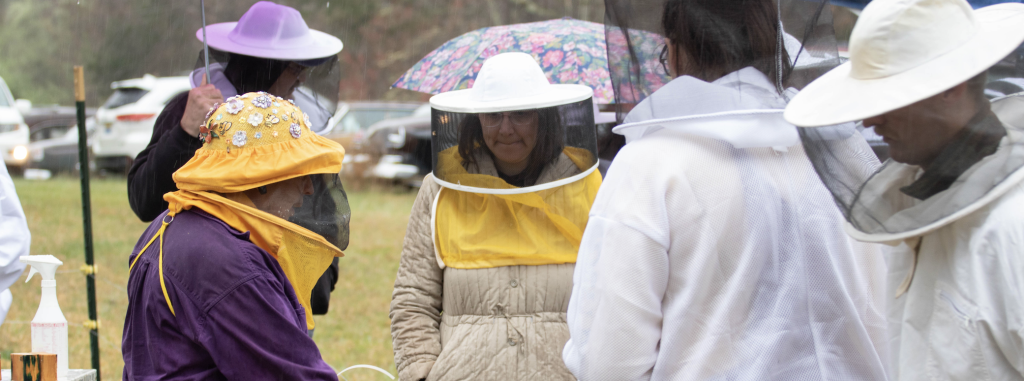When springtime arrives in Lynchburg, a drab winter landscape is exchanged for thousands of colorful flower blooms across town. Much of this colorful display would not be possible, though, were it not for a single unassuming creature — the honeybee. The Piedmont Beekeepers Association (PBA), made up of local residents, seeks to preserve and care for these often-forgotten wonders of nature.

The PBA has existed in Lynchburg for more than 100 years. Its members span a wide range of people, from novice learners who don’t keep bees at all to semi-commercial beekeepers (also called “sideliners”) who have hundreds of hives. Ann Zudekoff, an education specialist for the PBA, appreciates the diversity of the group.
“We all share the same objective, which is we love bees. We want to do the best for the bees, and we want to tell everybody else about them,” Zudekoff said.
The PBA meetings are held on the third Thursday of every month, where members can fellowship and talk with one another about their beekeeping experiences. It also offers a beginner’s class for all members of the community, whether they’re members of the PBA or not. The class includes people from different walks of life, with attendees spanning from high school students to senior citizens. They are taught the basics of beekeeping, its history, the lifecycle of honeybees, managing colonies through the seasons and how to protect bees from various pests and predators.
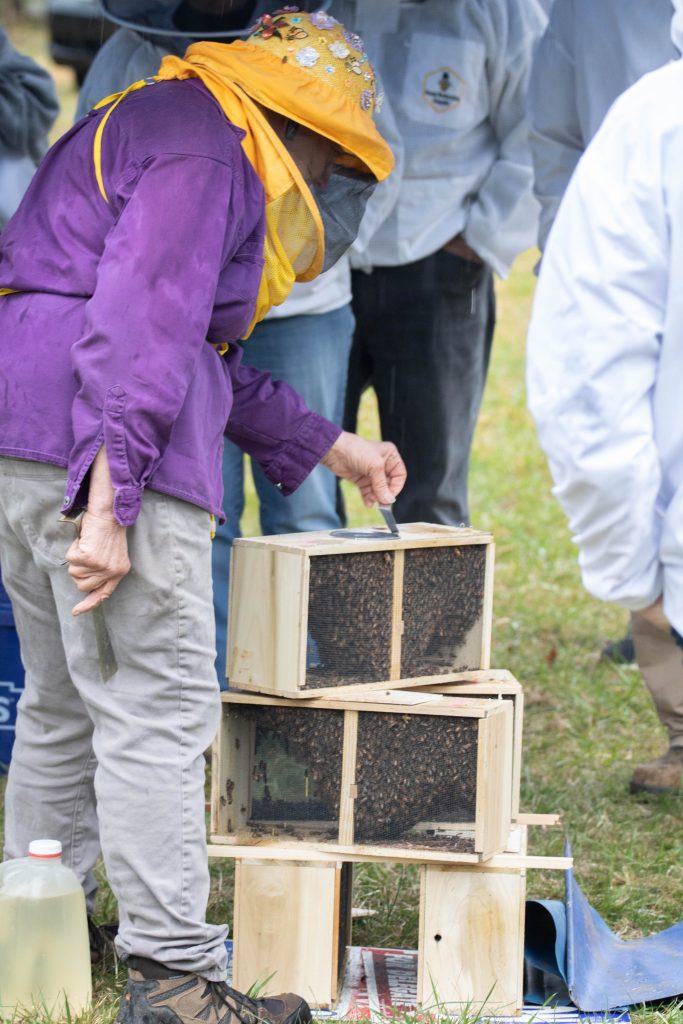
“The eight-week class barely scratches the surface. It gets you through your first year,” Zudekoff said. “This is where the club experience is so valuable because you get to talk to other people about how they do things — what’s working for them.”
Beekeeping is a serious undertaking, which is part of the reason why Zudekoff believes the introductory class helps new beekeepers so much. Those hoping to enter the hobby can expect to spend anywhere from $700-1,000, and a lack of knowledge of proper beekeeping techniques can quickly ruin that investment.
Additionally, bee colonies do not naturally accumulate in backyard hives. Most beekeepers buy their bees in packages (with a 3-pound package containing 10,000-12,000 bees and a queen) that are shipped through the mail. Another common technique is through catching swarms, which happens during the honeybee reproductive season in the spring. Every healthy bee colony will halve itself as it reproduces, and the resulting swarms of bees will hang around on trees and fence posts. Experienced beekeepers will often spend time driving around the countryside during this season to hopefully find and capture a swarm for their own hives.
“(Beekeeping) is a commitment not to be taken lightly, but it is tremendously rewarding. It can be a ton of fun, but it’s also a lot of work,” Zudekoff said. “Beekeeping is definitely an endeavor that you need to keep working at.”
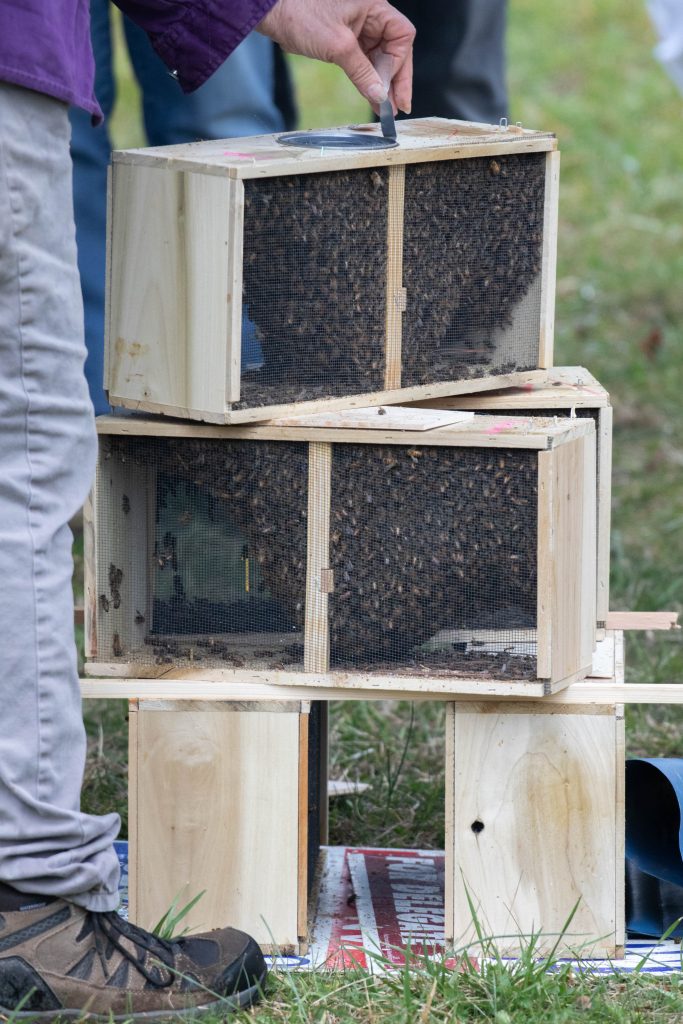
“It’s a commitment to you and the bees and the environment because it helps all three,” PBA Vice President Charles Brooks said.
Myths about bees can act as a deterrent for those who would consider it as a hobby. Many people believe that because bees have survived this long, they do not need help from humans, but Zudekoff said this belief discounts the changes the world has undergone.
“Bees have a lot more pressure these days than they did even hundreds of years ago,” Zudekoff said. “Beekeeping … (is) really necessary to keep up the honeybee population and to keep us healthy.”
Additionally, many people fear bees, thinking they are aggressive and likely to sting humans. Brooks said this belief fails to understand the nature of honeybees.
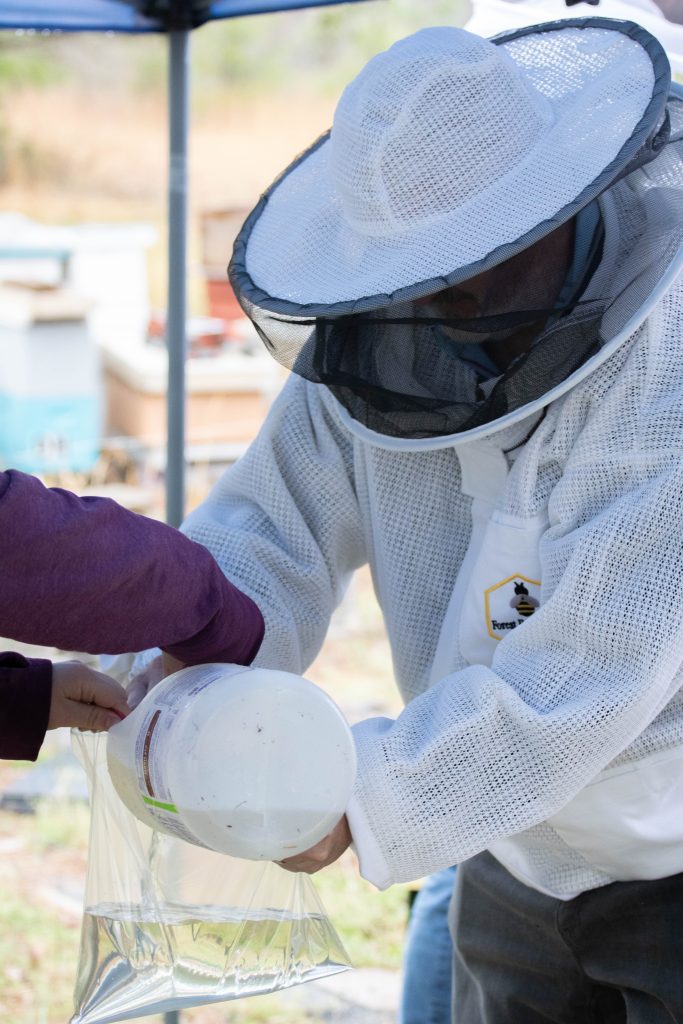
“There’s not a need to be scared of bees,” Brooks said. “If you treat them with respect, they treat you with respect.”
For those that may not have the time or money to invest in beekeeping, the PBA still invites them to join its efforts. It seeks to reach people in the community through the honeybee.
“We try to make ourselves a known presence for outreach and education. We don’t demand membership … We just want to promote that awareness of bees and beekeeping,” Zudekoff said. “Beekeeping’s not for everybody, but education is for everybody.”
If beekeeping sounds like a sweet deal to you, Liberty students can also volunteer to help with this organization. For more information, visit their website.
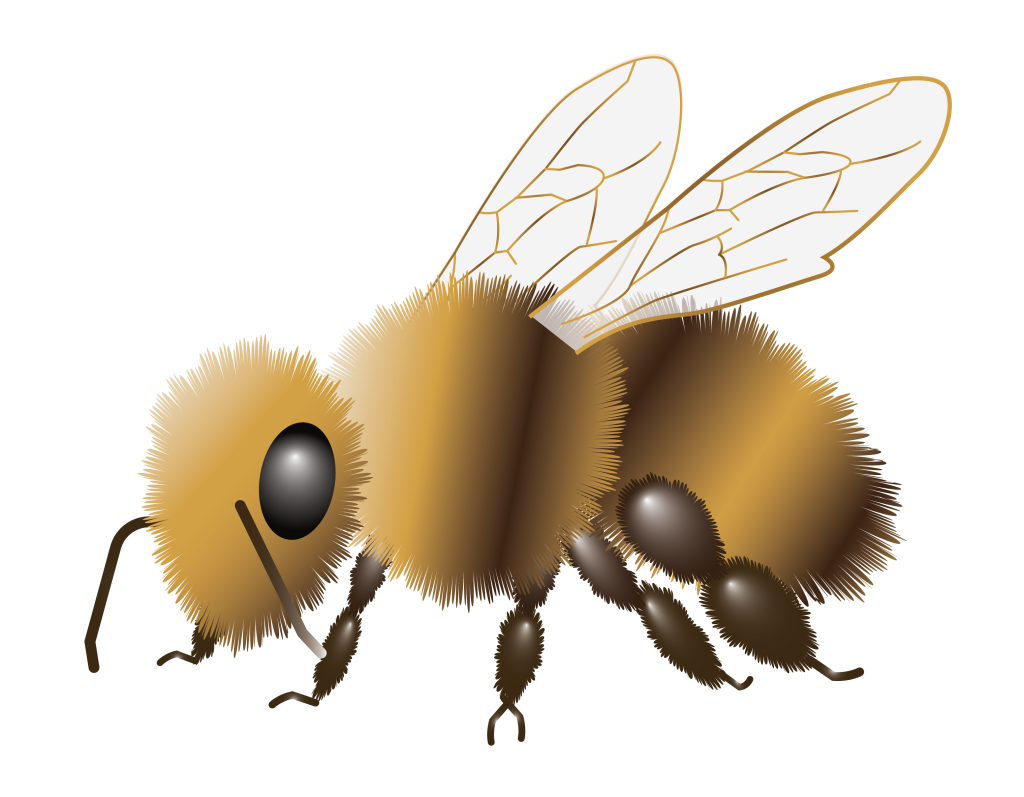
Campbell is a feature reporter for the Liberty Champion
